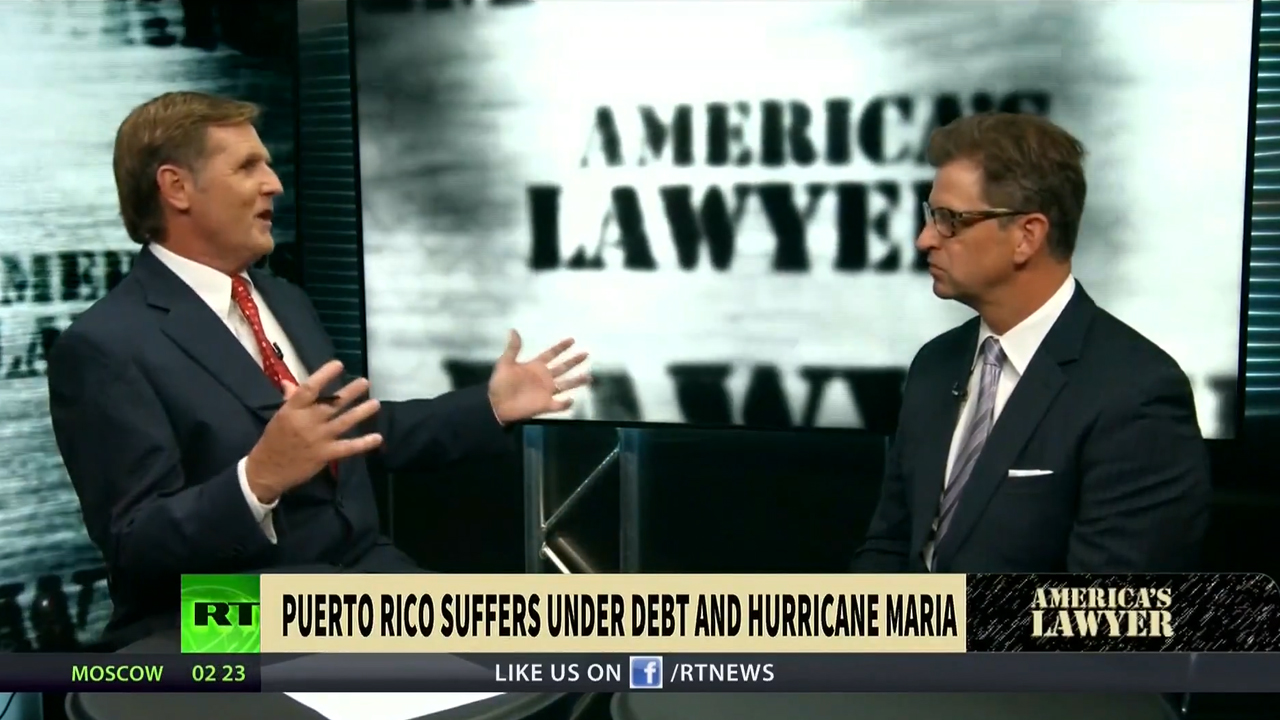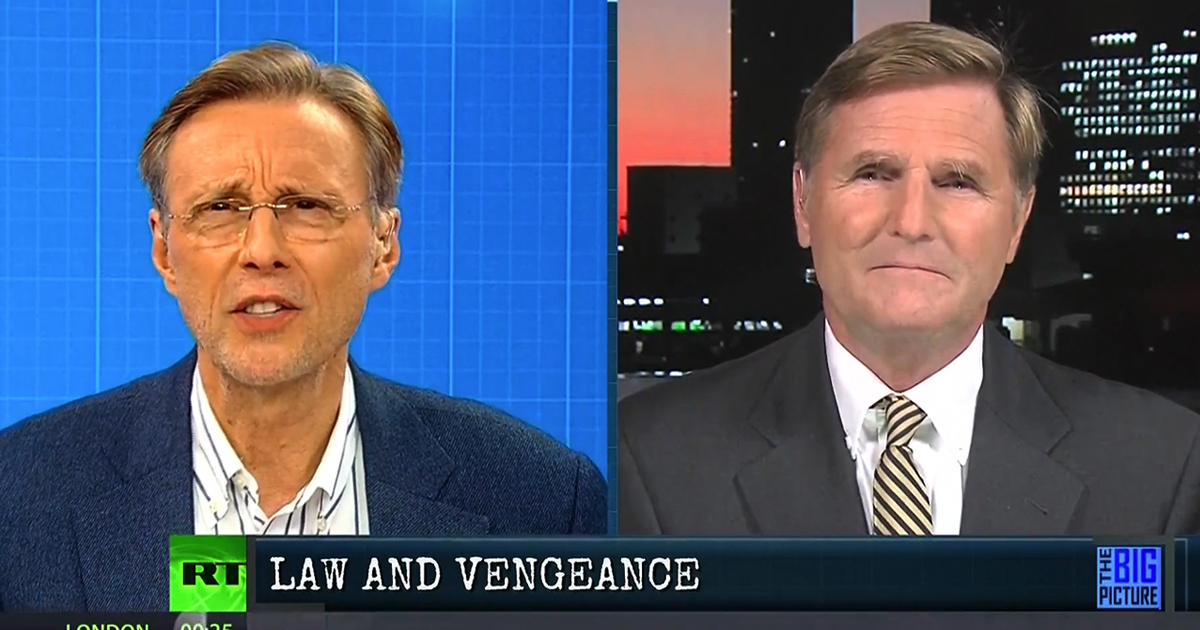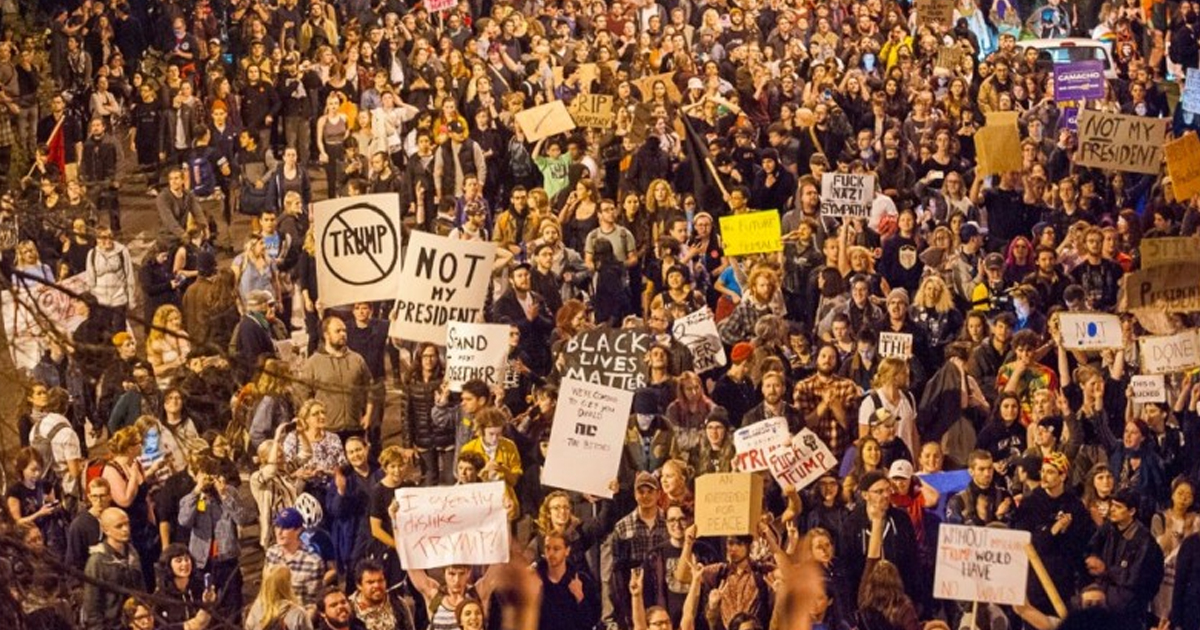To learn more about this topic, visit AL.Law
Via America’s Lawyer: Attorney Peter Mougey, talks with Mike about how Puerto Rico is still devastated by Hurricane Maria as it also drowns in $70 billion in debt.
Transcription:
Mike Papantonio:
Puerto Rico’s suffering enough from their $70 billions in debt, but now after Hurricane Maria hit the island, Puerto Ricans are living in a near hell zone with clean water, electricity, and food unavailable. Joining me to talk about this is Attorney Peter Mougey. Peter, what is the infrastructure capacity in Puerto Rico right now? I know you’re involved in Puerto Rico the last few years has been huge. You’ve represented some of these folks that have lost massive amounts of money, because of Wall Street scams, you’re tuned into everything that’s going on down there. Tell me what your take on what we’re hearing from the media and what reality is.
Peter Mougey:
It’s bad. It depends where you are. San Juan isn’t as bad as the outlying areas, some of the smaller towns, and rural areas. The rural areas and small towns, as you indicated in the opening, no power, no clean water, no basic services. There’s hundreds of thousands of people without homes. The further you get from the urban center in San Juan, the worse it gets. San Juan isn’t too much better. Power still a major problem. A very small percentage of the population, 10%, 11%, 12% has power. It’s intermittent. It’s going in and out, in and out. You never think about, “Oh, we don’t have power, what are the problems?” It’s just a ripple effect. Hospitals, you can’t get gas to keep the generators going, to keep the hospitals up. The ripple effect is huge. It’s not just air conditioning. It’s huge.
Mike Papantonio:
Now look, Rick Perry, that great bastion of intellectual thinking, I heard today called … He treated Puerto Rico like it was another country. A lot of Americans don’t understand, it’s not another country. They’re part of this United States.
Peter Mougey:
It’s embarrassing.
Mike Papantonio:
We should be horrified and embarrassed on the way that they’re being treated. Now granted, FEMA is being stretched a lot of different ways, but I think this lands really, this all starts really with a debt crisis that you have followed. That’s the big hit.
Peter Mougey:
It is.
Mike Papantonio:
First of all, the money issue is a big issue. You’ve handled that debt crisis for Puerto Rico for how many years now?
Peter Mougey:
We’ve been down there since 2013. We represent over a thousand investors. 2013 August, September, October, the debt crisis took a huge downward spiral. Then it’s continues all the way to today. It continued to decrease and decline month to month to month that the people of Puerto Rico are hurting.
Mike Papantonio:
Add that now to this hurricane catastrophe and tell us what we have. Add that-
Peter Mougey:
A recipe for disaster. I mean, you have absolutely … We have an island in the Caribbean that is essentially a colony of the U.S. They have disparate tax treatment. They have different tax schemes, worse tax schemes that we do. They don’t have representation in Congress. They’re borrowing money year to year to year to live, to pay for their basic services, garbage, health, safety, welfare. The debt gets up to $72 billion. It tanks, craters. The power grids already in disarray and then hurricane hits. Now you’ve got an absolute, complete, cataclysmic mess.
Mike Papantonio:
Your take on it, I almost want to ignore so much input os from media in general … What is your take to where this island is even operating in a way that more people can live on it?
Peter Mougey:
It’s not. As of right now, the governor had said that they’re looking at potentially another government shutdown, because they don’t have money to pay for essential services at the end of this month. $72 billion of debt on this tiny, little island with a population of a couple million people. The scary thing is you have, for example, President Trump a couple weeks ago, when he went down, he was shooting the rolls of paper as basketballs into the crowd saying, “We’re going to wipe away the public debt.” What he doesn’t understand, what doesn’t resonate is that the people that own a good chunk of that debt are the people that live on the islands.
Mike Papantonio:
In other words, it’s not Wall Street. He makes it sounds like Wall Street’s going to take the hit, which would be great, because Wall Street absolutely caused-
Peter Mougey:
They created-
Mike Papantonio:
They created the debt crisis. First of all, is there any question?
Peter Mougey:
No, there’s nothing. It’s the banks. We’ve been studying this for years. The banks on the island pushed issuing debt as a fix to the problem knowing and then got out. Most of the big banks Santander, UBS got out, reduced their exposure to public debt down to zero, lost almost nothing, left the islanders holding the debt. Now you have President Trump saying, “Let’s just wipe away the debt.”
Mike Papantonio:
Erase the debt.
Peter Mougey:
The people that are going to get killed are the people on the island who count on it to pay their bills.



